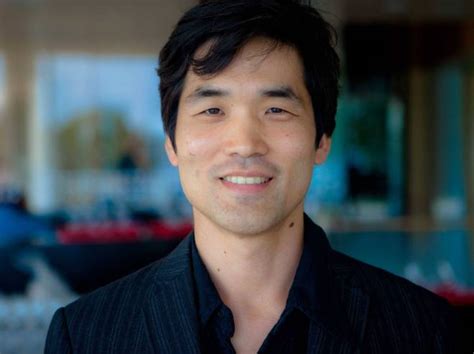A Quote by Brendan Iribe
Replacing human vision is more than just a tool: we need to understand how that affects the brain.
Related Quotes
The first thing you do as a producer is you try to understand the director's vision in as deeply a way as you can. Sometimes, you end up with a director that has more vision or sometime they have less vision. You hope that they have more. In the case where they have more, you need to understand it in the deepest way you can.
When we understand that we are a human race, what affects you affects me, what affects her affects you and so on and so on, then we'll look at this thing [HIV/AIDS] for what it really is. It's a disease that's out to kill all of us. What will make it continue is our prejudices, our ideas about it, and the fact that we don't look at ourselves as one giant community.
We are not born with effective vision. The human infant has to learn how to see. The eyes gather information, they transmit it to the brain, but the brain doesn't know how to process it yet. We learn how to see in a way that's very similar to the way we learn how to speak. It takes a couple of years.
I think the definition will change as we learn more, but my working definition of solving the brain is: one, we can model, maybe in a computer, the processes that generate things like thoughts and feelings, and two, we can understand how to cure brain disorders, like Alzheimer's and epilepsy. Those are my two driving goals. One is more human-condition oriented, and one more clinical.
The players start to recognise your game, start to know how you move, how you pass, how you shoot and the things become difficult now. So now I need to improve more and to work more and understand more the teams who I play against because they will understand me better, but I need to be prepared to understand better the difficulties they can have.
You will never find scientists leading armies into battle. You just won’t. Especially not astrophysicists -we see the biggest picture there is. We understand how small we are in the cosmos. We understand how fragile and temporary our existence is here on Earth. We understand there are bigger problems we need to solve as a species than what God you pray to.
Science is a human activity, and the best way to understand it is to understand the individual human beings who practise it. Science is an art form and not a philosophical method. The great advances in science usually result from new tools rather than from new doctrines. ... Every time we introduce a new tool, it always leads to new and unexpected discoveries, because Nature's imagination is richer than ours.


































